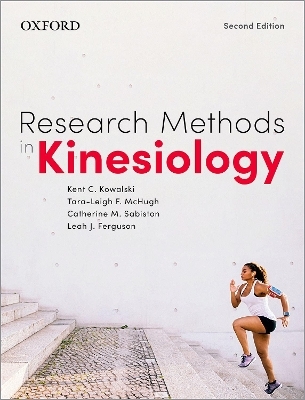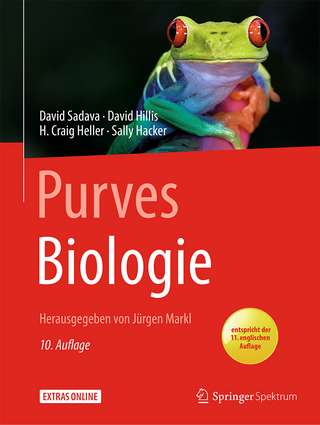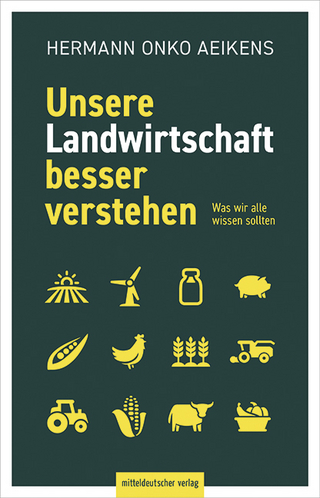
Research Methods in Kinesiology
Oxford University Press, Canada (Verlag)
978-0-19-903764-3 (ISBN)
With its skill-building pedagogy - including learning outcomes, key terms, cartoons, discussion questions, and an exciting box program with case study and exercise boxes - Research Methods in Kinesiology helps students gain the practical skills they need to conduct their own research. Professional and research highlight boxes show students the variety of exciting studies being conducted across Canada today, while new "Pathways" boxes that discuss the transition from university to a career. Research Methods in Kinesiology, second edition, is the go-to text for the aspiring researcher in the field of kinesiology.
Kent Kowalski is a professor in the College of Kinesiology at the University of Saskatchewan. His research, teaching, and applied work are primarily in the areas of sport, exercise, and health psychology. He is the principal investigator on a SSHRC research grant focused on exploring the role of self-compassion in the lives of young female athletes. He has published 45 journal articles and 14 book chapters, has reviewed over 100 submitted manuscripts for peer-reviewed journals, and is currently on the editorial board of the Journal of Sport and Exercise Psychology. He has taught introductory research methods courses to over 600 undergraduate and graduate students at the University of Saskatchewan. In addition to leading a successful research program, Kent has been a Mental Performance Consultant with the Sport Medicine and Science Council of Saskatchewan and an Assistant Coach with the University of Saskatchewan Huskie Soccer program for over 20 years. Tara-Leigh McHugh is a professor in the Faculty of Kinesiology, Sport, and Recreation at the University of Alberta, and she is currently the lead academic in the University of Alberta's Certificate in Aboriginal Sport and Recreation. She is also the principal investigator on a SSHRC research grant focused on better understanding the role of communities in supporting sport opportunities for Aboriginal youth. She has published 20 journal articles and authored 36 presentations at national and international academic conferences. Tara-Leigh has reviewed 43 manuscripts for 12 peer-reviewed journals since 2009, and she currently serves on the editorial board for Qualitative Research in Sport, Exercise and Health. She has taught research methods courses to undergraduate and graduate students at Dalhousie University, the University of Saskatchewan, and, currently, the University of Alberta. Catherine Sabiston is a professor in the Faculty of Kinesiology and Physical Education at the University of Toronto. She has taught research methods, measurement and evaluation, and statistics courses to nearly 1000 students at the University of British Columbia, McGill University, and, currently, the University of Toronto. To date, she has published in a range of psychology, health, education, and medical journals with a total of 98 publications and over 200 conference presentations. Catherine currently holds grants from all three tri-council funding agencies (SSHRC, Canadian Institutes of Health Research, and Natural Sciences and Engineering Research Council) and several other national and provincial funds. She is an associate editor for Journal of Sport & Exercise Psychology and an editorial board member for Psychology of Sport and Exercise and Sport, Exercise, and Performance Psychology. Recently, she was also an associate editor for the Encyclopedia of Sport and Exercise Psychology. Leah Ferguson is an associate professor in the College of Kinesiology at the University of Saskatchewan. Her research, which focuses primarily on young women's physical activity and psychological well-being, has been published in a number of prominent journals, including the Psychology of Sport and Exercise and Qualitative Research in Sport, Exercise and Health. She has experience with mixed methods research, as highlighted by recent publications in the Journal of Sport & Exercise Psychology and Research Quarterly for Exercise and Sport, in which she was the primary author on mixed methods research studies. Leah holds active memberships with the Canadian Society for Psychomotor Learning and Sport Psychology (SCAPPS) and the North American Society for Psychology of Sport and Physical Activity (NASPSPA), and frequently presents her research at national and international conferences. Leah is also a Mental Performance Consultant with the Sport Medicine and Science Council of Saskatchewan, where she has the opportunity to work with athletes and teams to support flourishing in sport.
Preface and Acknowledgements
1. Introduction to Research in Kinesiology
Learning Outcomes
Introduction: Current Knowledge in Kinesiology
Introduction to Research Methods in Kinesiology
Components of a Research Design
Philosophical Worldviews as Guiding Frameworks of Research
Text Content Overview
Summary
Discussion Questions
Recommended Readings
2. Identifying a Research Question and Study Purpose(s)
Learning Outcomes
The Research Topic
The Research Problem
The Literature Search and Review
Purpose
The Research Questions and Hypotheses
Summary
Discussion Questions
Recommended Readings
3. Research Ethics
Learning Outcomes
Ethical Standards in Research
Research with Indigenous Peoples
Animal Research Ethics
Ethical Decision-Making
Summary
Discussion Questions
Recommended Readings
4. Quantitative Study Design
Learning Outcomes
Quantitative Study Design
Threats to Experimental Validity
Measurement in Quantitative Research
Sampling for Quantitative Studies
Summary
Discussion Questions
Recommended Readings
5. Data Analysis in Quantitative Studies
Learning Outcomes
Introduction to Data Analysis
Descriptive Statistics
Matching Research Questions to Statistical Analyses
A Brief Primer on Hypothesis Testing
Statistical Significance versus Practical Significance
Summary
Discussion Questions
Recommended Readings
6. Evaluating the Merits of Quantitative Research Studies in Kinesiology
Learning Outcomes
A Brief Primer on Validity as a Standard for Evaluating Quantitative Research
Application of Logical Validity
Application of Construct Validity
Application of Internal Validity
Application of External Validity
Summary
Discussion Questions
Recommended Readings
7. Qualitative Study Designs
Learning Outcomes
Qualitative Strategies of Inquiry
Role of Theory in Qualitative Research
Sampling for Qualitative Studies
Data Generation in Qualitative Research
Summary
Discussion Questions
Recommended Readings
8. Data Analysis in Qualitative Studies
Learning Outcomes
Introduction to Qualitative Data Analysis
Qualitative Data Analysis as Immediate, Ongoing, and Spiral
Steps in Qualitative Data Analysis
Summary
Discussion Questions
Recommended Readings
9. Evaluating the Merits of Qualitative Research Studies in Kinesiology
Learning Outcomes
A Brief Primer on Evaluating Qualitative Research
Trustworthiness as a Starting Place for Evaluation
Additional Considerations for Evaluating Qualitative Research
Taking a Relativistic Approach to Evaluating Qualitative Research
Ethics: The Bottom Line for Evaluation
Summary
Discussion Questions
Recommended Readings
10. Mixed Methods Research
Learning Outcomes
Introduction to Mixed Methods Research
Planning Mixed Methods Research
Mixed Methods Research Designs
Summary
Discussion Questions
Recommended Readings
11. Participatory Action Research
Learning Outcomes
Introduction to Participatory Action Research
Defining Features of PAR
Research Process
Role of Theory in PAR
Process for Engaging Underrepresented Populations in Research
Inherent Challenges of PAR
Summary
Discussion Questions
Recommended Readings
12. Knowledge Translation
Learning Outcomes
What Is Knowledge Translation?
Knowledge Translation Strategies
Traditional Knowledge Translation Approaches
Innovative Knowledge Translation Approaches
Selecting Knowledge Translation Strategies
Summary
Discussion Questions
Recommended Readings
Glossary
References
Index
| Erscheinungsdatum | 22.11.2023 |
|---|---|
| Zusatzinfo | 38 figures, 19 tables, and 14 cartoons |
| Sprache | englisch |
| Gewicht | 10 g |
| Themenwelt | Naturwissenschaften ► Biologie |
| Weitere Fachgebiete ► Sportwissenschaft | |
| ISBN-10 | 0-19-903764-7 / 0199037647 |
| ISBN-13 | 978-0-19-903764-3 / 9780199037643 |
| Zustand | Neuware |
| Informationen gemäß Produktsicherheitsverordnung (GPSR) | |
| Haben Sie eine Frage zum Produkt? |
aus dem Bereich


